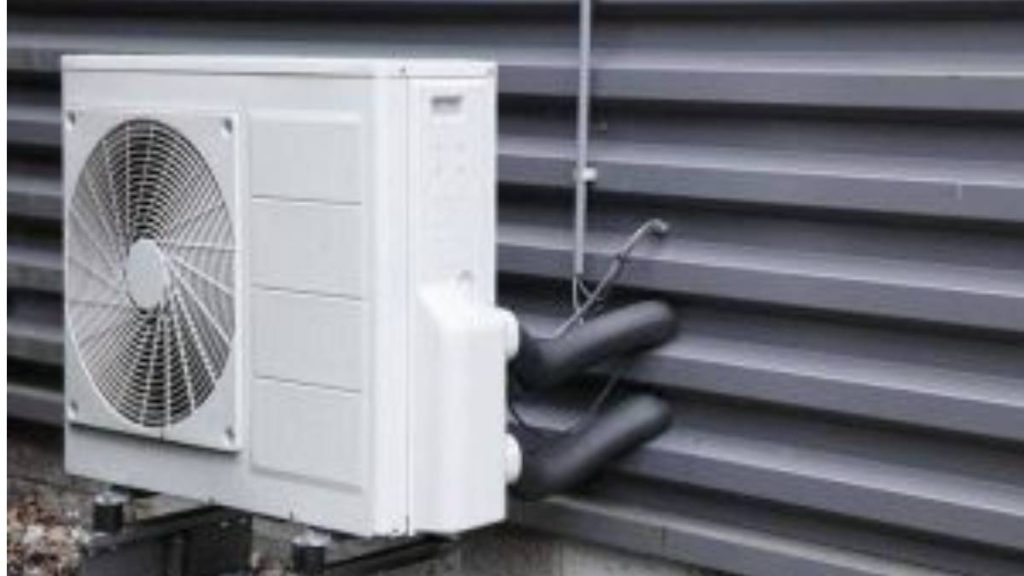According to a new study, New York may begin forcing New Yorkers to use electricity for home heating instead of fuel by 2030. This new policy may have little impact on greenhouse gas emissions. However, New York residents could face high heating bills.
The state is pushing residents to buy expensive electrified heat pumps to phase out the use of natural gas, oil, and propane systems. Consequently, residents are curious about how this new development came about, how it works, and its pros and cons.
Governor Kathy Hochul’s Plan
New York’s 2019 Climate Leadership and Community Protection Act calls for reducing statewide greenhouse gas emissions by 85 percent by 2050. Consequently, Governor Hochul plans to ban gas stoves in newly constructed homes in the Empire State by 2025.
However, Governor Hochul’s proposal sparked outrage from most Empire Staters. In addition, the opposition leaders said Hochul’s plan was just about “accumulating power to control the lives of ordinary people.”
Impact on Greenhouse Gas Emissions
According to an Empire Center report, compulsory electrification in New York will have little impact. The study revealed that the global effect of mandatory costly electrification would be a reduction of less than 0.05 percent of greenhouse gas emissions.
Considering the little impact this policy has on the environment, New Yorkers worry the policies will drive more homeowners out of town.
New Yorker’s Reaction to the Proposal
Following Governor Kathy Hochul’s announcement, several Empire Staters took to social media to express their outrage. While a few state residents loved the plan, most kicked against it. Empire Center fellow James Hanley said that the Governor is acting without regard for consumer preference.
In addition, Hanley said that the Governor didn’t consider homeowner costs or other cost-effective means of reducing gas emissions.
“Homeowners Should Have a Say”
Aside from faulting Governor Hochul’s plan for its lack of consideration, Hanley says homeowners should have a say. He argues that it should be up to homeowners to decide what they want in their homes.
“This is the fundamental problem at the heart of New York’s command-and-control attempt to restructure its economy to make what amounts to barely detectable reductions in global emissions,” Hanley said. “Albany can ban things, but it can’t control how people replace them,” He added.
Governor Hochul’s Office Rebuttal
Following Hanley’s comments on Hochul’s plan, her office rebutted. “Under the status quo, New York consumers are stuck with dramatic fluctuations on utility bills and sky-high costs after extreme weather events.” a rep for the Governor said.
The rep also said Governor Kathy Hochul plans to make the clean energy revolution affordable for New Yorkers. In addition, the Governor’s representative revealed that she’s invested nearly $1.6 billion on energy affordability initiatives.
The Electrification Budget
While rebutting Hanley’s claims, Hochul’s office revealed that the current state budget includes $200 million. This budget is to ease the high electric bills for 800,000 households whose family income is under $75,000.
In addition, Hochul’s office revealed that there is a separate $200 million fund. This fund is to help 20,000 low-income families upgrade their homes by adding insulation or buying new energy-efficient appliances.
The Electrification Cost on Middle-Class Empire State Homeowners
Experts suggest that heat pump installation costs will be a burden even with state and federal subsidies. According to research, installing a heat pump and weatherizing a home costs between $14,600 to $46,200.
Consequently, the electrification cost will take up about 20% to 70% of the middle-class homeowners. On the contrary, the Governor insists that participating families will pay no more than 6% of their incomes on electricity.
The Statistics
According to reports, over six million residential units in New York use fuels for heating. In addition, over five million also use them for hot-water heating, and over four million use them for cooking.
While most homes use natural gas, more than 1.7 million New Yorkers reportedly use propane, heating oil, or kerosene for heat. However, reports suggest over a million also use those fuels for hot water.
Experts Say the Heat Pumps Are Not Effective
The skyrocketing cost of electrification has aroused concerns. However, experts are worried that electric heat, the city’s preference, doesn’t work as well as boilers that burn fossil fuels.
Bob Friedrich, board president of Glen Oaks Village in northeastern Queens, the city’s largest garden-apartment complex, warns that heat pumps for electrical systems “are only efficient for temperatures in the 30s and 40s.” He added that below that, “they become less efficient to heat a home.”
The Real Estate Implications
Since real estate companies own rental apartment towers, they have a substantial revenue base. Hence, the cost of heating might not be so much of a burden.
However, individual shareholders and owners will bear electric heating costs in Co-ops and Condos. But do it, the city demands, or face enormous fines as high as $200 million. Warren Schreiber, board president of Bay Terrace, said, “I’ve never had an issue that actually kept me awake at night.”
Effect on the State’s Electricity Grid
Aside from burning out the wallets of New Yorkers, the state’s compulsory electrification program will take a toll on the state’s electric grid. Experts say heat pumps do not warm the air as much as fuel-fired furnaces.
Consequently, homeowners in colder areas may opt for more energy-intensive electric resistance furnaces. Although these energy-intensive electric resistance furnaces have lower upfront costs, they cost more. In addition, the widespread adoption of these furnaces will increase electricity demand.
The Future of Oil Distribution in the State
Since electrification seems like the way forward for New Yorkers, the future of oil in the state is bleak. Whether homeowners choose heat pumps or electric resistance heaters, the future of oil and propane distribution firms appears dire.
In addition, propane furnaces will be out of the market between 2047 and 2050. Similarly, oil furnaces would be extinct by 2056 and 2063. Hence, reports suggest the home heating oil industry will also go out of business.
